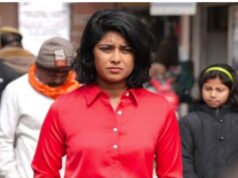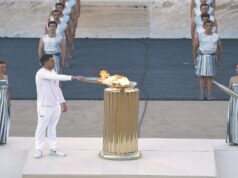An Iranian diplomat has been accused of fuelling radicalism with a fiery, anti-Israel speech at an Auckland mosque.
Jewish community leaders want Hormoz Ghahremani, first secretary of the Iranian Embassy, to be expelled after he appeared alongside speakers who denied the Holocaust and called for the “surgical removal” of Israel.
In his speech, Ghahremani said Israel was trying to “deceive the world” by pretending to be an advocate of peace when in fact it was fuelling terrorism and extremism in the Middle East to divert attention from the Palestine issue.
He said Quds Day was established “to deal a powerful punch to the mouth of the cancerous tumour known as evil Israel,” and cited Imam Khomeini as saying that “if every Muslim were to spit in the face of Israel, Israel would drown”.
The annihilation of the “Zionist regime” had begun, he said, and Israel would not last for another 25 years.
Community elder Sayed Taghi Derhami, a Mt Albert accountant, told attendees at the event that Israel was a “cancerous gland” that had to be “surgically removed”.
Ghahraman, who came to NZ from Iran as a refugee as a child, said on Saturday night that she was concerned that racist rhetoric was becoming more common place in mainstream New Zealand politics. ”We are seeing this insidious racism creep into the mainstream,” she warned. “It’s important to note the Holocaust was the most harrowing of crimes against humanity
A video of the speeches has been posted on the YouTube channel of the Islamic Ahlulbayt Foundation, which hosted the event at its centre in the east Auckland suburb of Pakuranga.
Members of the Jewish community say it’s outrageous that the representative of a foreign Government should make such comments. The speech was in June but has only just come to light.
Ghahremani told Stuff he agreed the speech could be seen as inflammatory, but it had to be taken in the context of the event at which it was given. He spoke at a gathering to mark the annual Quds Day, initiated by Iran in the 1970s to support Palestinians and oppose Zionism.
Contacted at the Iranian Embassy in Wellington, Ghahremani said his speech was supposed to be private and he was upset it had been put on the internet. “It was something private, a small gathering. I was there to reflect the position of the Iranian Government.
“We do not recognise the Israeli Government, that’s not a secret. But we are not against their existence.”
Asked if such inflammatory speeches could fuel radicalism in the Muslim community, Ghahremani said: “If it’s spoken in public places yeah, you’re right. But it was a small, private gathering that happens once a year. This year they make a mistake to shoot a film, to put it on YouTube.”
Juliet Moses, a spokeswoman for the Jewish Council, said the fact an Iran Government representative was making such inflammatory statements was concerning. “It’s not a great surprise in one sense, because statements like this come from Iranian leaders all the time, but when those words are being spoken in New Zealand it’s a very different matter,” she explained.
“What audience is being spoken to here and what are they believing and what messages are they taking from that? Clearly Islamist terrorism is becoming more frequent in Western countries, and Jews are essentially at the coalface.”
Moses said she hoped the Government would investigate and take action against Ghahremani. “Expulsion might be an option.”
She said it was the second incident in a year, after Dr Mohammad Anwar Sahib, president of a Manukau mosque, was revealed to have been giving anti-Semitic sermons. He was sacked as religious advisor for the Islamic Associations of NZ.
In March last year, Iranian foreign minister Mohammad Javad Zarif visited New Zealand and said his country was being threatened by Israel on a daily basis.
Paul Moon, a history professor at the Auckland University of Technology, said he’d viewed the recent videos and it was clearly “extremist talk with elements of racism as well”.
He said the Human Rights Commission should investigate.
A commission spokesperson said the online videos could be a breach of the Harmful Digital Communications Act, which made it an offence to denigrate people on religious and ethnic grounds.
Source – Sunday Star Times




